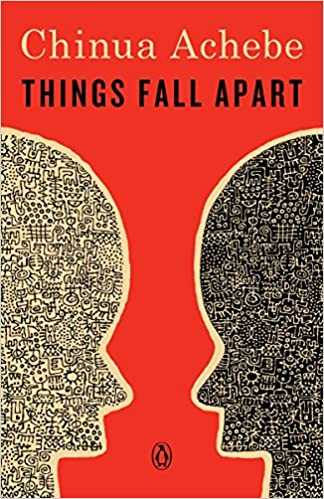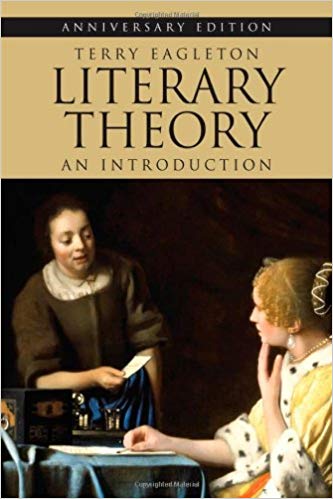We will read some texts from Asia, Africa, and the Caribbean not simply as crystallized versions of the cultures that they attempt to represent, but also use them as points of departure into a study of the larger power structures within which these texts are produced. In doing so we will also question our own place and privileged location in the United States.
The course is divided over two consecutive semesters: In Fall 2009 we will focus primarily on the theoretical aspects of the course along with some literary texts; the Spring 2010 semester will deal mostly with literary texts using the theoretical knowledge mastered during the fall semester.
Edward Said. Orientalism.
Qurratulain Hyder. River of Fire.
Ngugi wa Thiong’o. Devil on the Cross.
Naguib Mahfouz. Children of the Alley.
George Lamming. In the Castle of My Skin.
- Ngugi–From the Garden of Languages, the Nectar of Art: An Interview with Ngũgĩ wa Thiong’o.
- Ngugi–Standing our Ground.
- “Qurratulain Hyder’s River of Fire: The Novel and the Politics of Writing Beyond the Nation-State.”
- Mahfouz–Time and Memory.
- Lamming–Minting the Face of Empire: Coinage and the Shadow King in George Lamming’s In The Castle of My Skin.
Course Policies and Requirements
You are expected to come prepared for class: This involves reading the assigned texts, listening carefully to your peers, and contributing your views in a collegiate and stimulating way. Attendance is mandatory.
Online Journal Responses 200 Points.
Participation 100 Points
Final Exam 200 Points
Total 1000 Points
Response Journals:
Every week you will post your response to the readings on the discussion thread provided under Discussion Forum on the course website. To be able to do this you must create a user name on the course website; you will share this user name with me for me to be able to keep a record of your postings. Your response must at least be 500 words.
During the first week you will choose a particular text for a group presentation. Your presentation will then fall in the week in which your chosen text is scheduled for class discussion. I expect a 30-40 minutes FORMAL PRESENTATION using the insights provided by the secondary readings. You must also turn in a 3-5 page written brief of your presentation with a detailed list of your scholarly sources. Following are some, but not all, questions you may consider:
- What does the text say about gender, race, ethnicity, class, nation, or power and what are your views about it?
- Did you agree or disagree with the text’s politics? why?
- What is the text critiquing?
- How can we relate this text to contemporary realities?
- Does this text raise the question of justice? If so, how and for whom?
- Does the text provide a politics for a better future?
As this course is based on a discussion format, your thoughtful participation is essential to the success of the class. I encourage collegiate, open, and thought-provoking class discussions. Remember, we are all here to learn, so let us share our ideas and knowledge to make this class into a dynamic learning experience.
The final term paper will be due on the last day of class. The paper (10-12 pages should have a clearly defined thesis and a coherent argument. I would encourage you to choose your topic early and do extensive research. I will be available to assist during all stages of your research and composition process.
You are expected to attend the class regularly. You will be in the danger of failing the course if you miss more than FOUR class sessions.
(Excerpt from the University’s Administrative policy and procedures regarding student cheating and plagiarism. Excerpted from University Policy Register #3342-3-07)
University Policy 3342-3-01.3 requires that students with disabilities be provided reasonable accommodations to ensure their equal access to course content. If you have a documented disability and require accommodations, please contact the instructor at the beginning of the semester to make arrangements for necessary classroom adjustments. Please note, you must first verify your eligibility for these through Student Accessibility Services (contact 330-672-3391 or visit www.kent.edu/sas for more information on registration procedures).
Grading Scale:
A 960-1000
A- 900-959
B+ 860-899
B 830-859
B- 800-829
C+ 760-799
C 739-759
C- 700-729
D+ 660-699
D 630-659
D- 600-629
F Less than 600 Points
Week 2 and 3
Discussion: Said
Video: On Orientalism.
Reading:
Hyder
HO 3
Week 4 & 5
Hyder
Reading:
Ngugi
HO 1 & 2
Week 6
Discussion: Ngugi HO 1 & 2
Reading:
Ngugi
Week 7
Discussion: Ngugi
Reading:
Mahfouz
HO 4
Week 8
Mid Term
Discussion: Mahfouz HO 4.
Reading:
Mahfouz
Week 9
Discussion: Mahfouz
Reading:
Lamming, HO5
Week 12
Discussion: Lamming
Week 13 & 14


